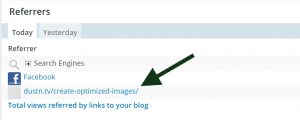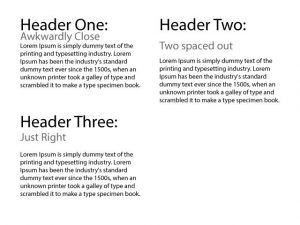— September 28, 2018
Emotional Intelligence is defined as the capacity to be aware of, control, and express one’s emotions, and to handle interpersonal relationships judiciously and empathetically. Everyone has room for improvement when it comes to EQ, but especially if they interact with others in the workplace.
What does EQ have to do with your job?
I know what you are thinking: “I already have a high IQ, so why do I have to worry about my EQ as well?”
A large part of our job at work is communicating with coworkers and our clients. Being an effective communicator is not only personally fulfilling, but it also creates trust and rapport.
Ultimately the end product, the result of the work we do together, benefits from efficient and clear communication fostered by emotional intelligence. Employees, as well as clients, feel heard and supported in an environment with high EQ. (If you’re looking for a more tangible carrot, high emotional intelligence has been linked to higher salaries.)
EQ is is a stress-buster
Stress is unavoidable in the workplace, and it often stems from the unexpected. It’s how we treat each other at times of high stress that sets the tone in the office.
Unfortunately, stress often fosters a communication breakdown. It can make us irritable and impatient. Developing an high EQ can help you self-regulate and manage those feelings and allow clear communication between coworkers and clients. The result? More progress and fewer trips to the snack closet to eat your feelings. In all seriousness, the result is a stronger team that communicates when things are great and when things are hard.
So how do you boost your EQ?
Here are some helpful techniques you can use to increase your EQ in a professional setting:
Be an active listener
Being an active and engaged listener when others are speaking is the first step to being an effective communicator. So often ‘good communication skills’ are defined by effectively getting your point across to someone, but in order to do that many things needs to happen before your message is ever delivered.
Try a few simple things to ensure the other person feels heard and understood, such as jotting notes, or repeating in your own words to confirm that you fully understand their point of view.
Emotions are as normal as breathing, but dealing with them in productive and professional ways can be tricky.
Cultivate empathy
By definition, empathy is the psychological identification with, or vicarious experiencing of, the feelings, thoughts, or attitudes of another. In simpler terms, empathy is putting yourself in someone else’s shoes to better understand where they are coming from.
Empathy gets you on the same page faster. You can tailor your communication to the situation and the other person involved. A shared understanding of a situation can help expedite a resolution. Don’t think about this as a totally touchy-feely thing or an indication that you have to soften your communication. It simply means developing a stronger ability to connect with and recognize other people’s needs and their responses to the world around us.
Regulate emotions
Emotions are as normal as breathing, but dealing with them in productive and professional ways can be tricky. Suppressing emotions is never the way to go, that inevitably leads to resentment and possible outbursts down the road.
When strong or negative emotions flare it is wise to take some time to process them before responding. Flaring emotions are temporary. Give yourself time to work through them internally before responding to a work situation. When you’ve given yourself space to process your emotions and examine what caused them in the first place, your response will be more rational, measured, and ultimately more productive.
At Big Sea, our core values encourage EQ
Open & Honest, Always
This is an easy concept to understand, but very difficult to execute. Being open and honest also means being vulnerable and having a lot of trust in each other. Our society as a whole encourages avoiding interactions that might lead to unpleasant feelings or friction. It takes a surprising amount of work to live open and honestly, always.
Own It
This concept has so many different applications — on one hand, it is about showing ownership for the work that we do for our clients, but there is also the personal application of owning our actions and their consequences. We are committed to owning the way we speak to and treat each other as teammates.
It’s all Personal
We pour ourselves into our work and it is all personal; which includes the good and the bad. One guideline we use in our office culture is to ‘assume good intent’ when interacting with each other. This helps unify us in positivity while working towards the same outcome.
EQ can make you a better marketer
Are you a marketer? If so, EQ can make you better at your job in a major way. Inbound marketing is all about connecting with your customers and their needs, so you can put the right content in front of them at the right time. It’s about solving problems and anticipating needs. All of these efforts require a high level of emotional intelligence. Practice your EQ skills not only in how you interact with your colleagues, but how you empathize with and respond to your prospects and your current clients.
Listen to your customers with EQ in mind. When you identify pain points, consider how your marketing materials and content can provide comfort and clarity. When you make someone feel better about something in their life, you’ve created a real connection. That’s meaningful marketing.
Ready to be an emotional intelligence rockstar?
Take your time and go easy on yourself. Having a high EQ takes a lot of self-work and reflection and patience. It is something that we all develop over years and years. It never stops being a process. (As much as all of us would like to level up and get our black belt in being an awesome human.) The reward — more meaningful relationships and stronger teamwork — is well worth the effort it takes to continually improve.
Business & Finance Articles on Business 2 Community
(82)
Report Post





